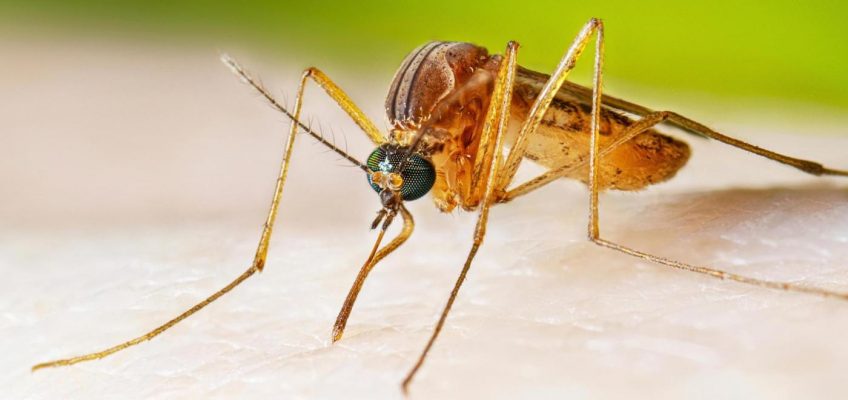Universal’s Halloween Horror Nights is back in action. The 2025 edition of the after-hours fright fest remains intense and just may have gotten ickier.
Among the trends spotted on Friday, opening night, were a resurgence of puppetry, the returns of a lagoon show and chainsaw-driven walkaround characters, more in-house screen use than ever (mostly positive), plus splattering effects that we’ll continue to cope with by reassuring ourselves that was only water. It’s only make-believe. Repeat, repeat.
Thanks to an R.I.P. Tour provided by Universal Orlando, the Sentinel wandered through all 10 haunted house mazes on night one. Here are quick, not-too-spoilery impressions.
Dolls: Let’s Play Dead
What we saw: It’s the tried-and-true theme park scheme of being shrunken down to the size of deformed dolls. This is the handiwork of a creative/twisted young girl who may grow up to be a makeup artist. Oh, hey, was that Woody? (There are also buttons for visitors to push for extra effects.)
Why we screamed: That one big baby, that one big baby head and that one baby with three heads.
A gargoyle soars over the heads of Horror Nights visitors inside the El Artista: A Spanish Haunting house. (Patrick Connolly/Orlando Sentinel)
El Artista: A Spanish Haunting
What we saw: The home and architectural splendor of (fictional) Spanish artist Sergio Navarro is pretty to look at and plays well into the conservatory through-line of this year’s HHN. There are scares high and low, including a flying gargoyle.
Why we screamed: One extremely well-camouflaged vine-based character, and we were faked out/afraid of some of the statues that weren’t really scare actors after all.
Fallout
What we saw: That retro futuristic feel of the “Fallout” video game and TV series. You know, bunkers, Earth and its surviving habitants in upheaval. It wasn’t very populated during our tour, which may have been due to a shift change of scare actors.
A Horror Nights scare actor reacts inside the “Fallout” house at Halloween Horror Nights, which runs through Nov. 2. (Patrick Connolly/Orlando Sentinel)
Why we screamed: There was classic misdirection caused by robots, fork-the-eye makeup that prompted a simultaneous “OUCH” from our group and the prospects of an unnerving mirrored room.
Five Nights at Freddy’s
What we saw: The most in-demand house on opening night, based on posted wait times, features animatronic-inspired looks, and they lurk throughout the Freddy Fazbear’s Pizza place. This was achieved by working with Jim Henson’s Creature Shop. It’s not truly a comedy house, but it has funny situations.
Why we screamed: The 150-minute wait time, though not an all-time record, is scary enough.
Mythical beasts come to life in the Gálkn: Monsters of the North house during Universal’s Halloween Horror Nights at Universal Studios. (Patrick Connolly/Orlando Sentinel)
Gálkn: Monsters of the North
What we saw: A cool, very un-Florida setting, the kind of northern village where you see fjords and Norse mythology. But there’s fire and ice, too, and a young girl in distress (not the first of the evening). They got momma and poppa, she cried. This space had multiple horned beings (Monsters? Demons? Both?) with impressive headpieces. Beastly ending also effective.
Why we screamed (and laughed hard): One scare actor got us good, three times, back-to-back-to-back. And then there was follow-up by others in a transition scene. (Co-worker: “I did my scared dance.”)
Grave of Flesh
What we saw: This is this year’s house with lots of skulls, skeletons and intestines. The space, not for the claustrophobic amongst us, is dirty and littered with decomposition punctuated by assorted underground creatures
Why we screamed: The creatures in the black-light stretch were effective, although members of our tour group placed this in the “interesting concept” category (Kind of odd for, you know, flesh eaters, but it was toward the end of the night.)
Hatchet and Chains: Demon Bounty Hunters
What we saw: More horned beings, but in an Old West setting where rootin’-tootin’ torture is common among the humans. There’s a wide variety of characters and settings, including a prison, bank and graveyard. Meanwhile, the portal known as Hell’s Well wins the HHN34 “fun to say” prize.
Why we screamed: That fireplace scene early on gave the icks.
Jason Voorhees is a frequent scary sight at Halloween Horror Nights. This year he pops up a lot inside the Jason Universe house. (Patrick Connolly/Orlando Sentinel)
Jason Universe
What we saw: It’s the house of a jillion Jasons, presented rapid-fire with the trademark “Friday the 13th” slashing sound effect. Just when you get into the beat of the scares, you know, just strolling along through the woods near Camp Crystal Lake, the pace gets frantic. JU also has an unusual indoor-outdoor floor plan. Kills are largely implied and there’s less blood than one might expect (See Terrifier house below).
Why we screamed: Distracted by one fake Jason only to be jump-scared by live one just inches to the left.
Terrifier
What we saw: Two words — bloody and stinky. Or maybe wet and dry. This place was dripping in it, and, fans say, true to the three films featuring Art the Clown, who also shows up unannounced in the HHN street program this year. There are, indeed, two options at the end, one dry, one wet and, in story, bloody. (There are signs to guide, but they’re kind of high. Know before you go). People have posted that they got “pretty wet,” but our party thought it was no biggie. The dry route was lonely and scary in that way. Both routes quickly arrive up at the same exit.
Art the Clown of ‘Terrifier’ fame can be spotted inside a haunted house and on the streets of Universal’s Halloween Horror Nights this year. (Patrick Connolly/Orlando Sentinel)
Why we screamed: Universal is selling ponchos in the queue.
WWE Presents: The Horrors of the Wyatt Sicks
What we saw: It’s a long and winding house featuring menacing wrestlers in the flesh and on screens. There’s Uncle Howdy and a lot of Huskus the Pig, it seemed, and others. Wrestling fans probably spot Easter eggs, but all can watch for the signature lantern of Bray Wyatt, who died (real life alert) in 2023.
Why we screamed: There’s a startle on the stoop, but then we were lulled early, only to be “got” by one of the loud drop-down windows and later by the just-after-relaxing finale that causes fists to rise in the air.
Halloween Horror Nights runs at Universal Studios theme parks on select nights through Nov. 2. It requires a separate ticket from regular theme park admission. For more information, go to universalorlando.com.
Email me at dbevil@orlandosentinel.com. BlueSky: @themeparksdb. Threads account: @dbevil. X account: @themeparks. Subscribe to the Theme Park Rangers newsletter at orlandosentinel.com/newsletters.




